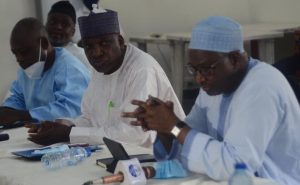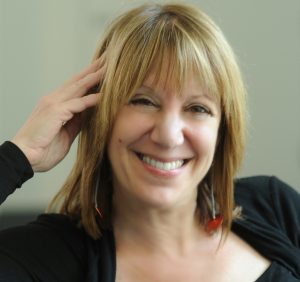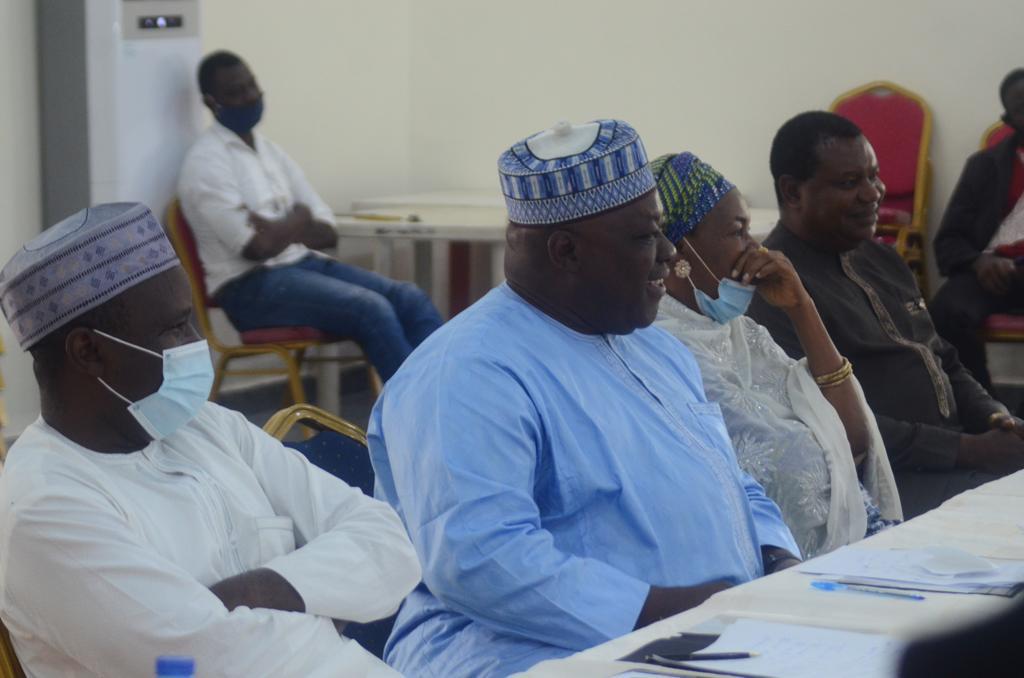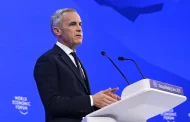“Policy Roundtable on Media and Peacebuilding in Nigeria” was the title and Kaduna was the advisedly chosen theatre for the Roundtable which saw media executives, peace practitioners, politicians and sundry intellectuals in a conversation Tuesday, September 29th, 2020. A lot of that conversation have been captured in the first part of this report.
This segment of the report is keener on what media and peace practitioners said on the question at the Roundtable. That is the question of whether the media can help peacebuilding, especially in Nigeria.
There is a way in which Hajiya Zainab Suleiman Okinno, a veteran columnist and Chairperson of the Editorial Board of Blueprint group of newspapers intervened at the Roundtable in response to this poser. But before she spoke at the afternoon session, three peace practitioners made interesting presentations that broadened the conversation.
Priscilla Ankut is the Executive Vice Chairman at the Kaduna State Peace Commission. She is convinced that the media has strategic role in shaping public opinion with particular reference to peace and conflicts. She came by this position from her belief that the media can and does moderate clashing narratives. In doing this, she believes it would be better for the media to focus on conflict sensitive reporting or Peace Journalism in the light of the diversity and sensitivities that defines the space they operate. She obviously had Kaduna State in mind. But she hooked this task to adequate training for the media to accomplish it. For her, it is a task that must be accomplished, considering the impact of violence on women and children in particular.
Mister Joseph Lengmang came from the Plateau State Peacebuilding Agency. He took off from categorizing the media into three in terms of ownership. These are state owned, private and social media. He associated privately owned media with being prone to the influence of religious, political, economic and ethnic interests as well as sensationalism because they want to sell. The agency for which he works holds a monthly dialogue for stakeholders. It is called “Peace Architecture Dialogue’ at which they stress balance and avoidance of hate speech because “we have seen that journalists set the agenda for conflict”, he said.

Sitting nearly off the camera is Mr. Paul Gwaza of IPCR next to Adagbo Onoja, Ambassador Zango Abdu of USIP and Dr Usman Bugaje, a member of USIP National Working Group
Mister Paul Andrew Gwaza was their counterpart from the Institute for Peace and Conflict Resolution, (IPCR), the Federal Government think tank on conflict management. He made many striking points, one of which is what he calls the need to look at the contest for the soul of the media. In other words, there is a struggle over control of the media because those who do not control the media do not get heard and those who do not get heard lose out, even in the fairest society. Or, as he put it, there is a Realism that any interest group that doesn’t have media access cannot achieve what it wants.
While everyone else concentrated on Southern Kaduna for much of the day, he brought a different example – the conflict in Gembu which tone would think is not being featured in the media. But Mr Gwaza told the Roundtable how the social media was superimposing killings in Ghana and Kenya and selling it to the public as what happened in that conflict.
His third contention is how the media could have helped in the Governor Ortom versus Inspector-General of Police in 2018 about the nature of the conflict in Benue State if the media had used what he called the correct concepts. He was, at this point, speaking to the theme of differentiating conflicts from criminality, saying that “if you mistake one for the other, you cannot make proper recommendations”.
Hajiya Zainab Suleiman Okino spoke towards the end of the Roundtable and appeared to take in much of these contentions, analysis and standpoints. She started by entering a disclaimer: I am a practical journalist talking about journalists promoting peace as opposed to conflict. In other words, Hajiya thinks there is a difference between theory and practice. There are few proper Schools or Departments of Peace and Conflict Studies or Mass Communication that would allow her go unchallenged with that sort of binarism today.
Her take off point is this: on the one hand, the media can be a force for good governance and peace because it is built on criteria of openness, balance and educating the audience. On the other hand, the media is seen as working in favour of conflict, arising from the ideology of news that bad news is what makes news. With that ideology, the routine is ruled out of news as only the negative and the dramatic counts. Birth doesn’t count. It is death that counts. So, the media has, in her view, become sensational and stereotypical and prone to provoking or escalating conflicts. She is not against reporting conflict but would also want to see the reporting of developmental news, for example.
In the absence of that, she sees loss of trust between the media and readers, citing the example how an attempt at balancing – a core principle of journalism – once earned for her the accusation of doing the bidding of Hausa-Fulani. But she thought she was doing her job.
She is also of the view that there is no commitment to the national idea anymore. She can see that everyone is putting personal preferences above everything else. But she also thinks the blame game should stop. “We have blamed ourselves enough”. The point, for her, is that governance has failed and that cuts through all facets. It is such that even when journalists have done their best, the state would fail to prosecute the suspects, giving the example of how a Chief Executive set some convicts free, using the instrument of state pardon. “So, as long as politicians are about power, so long would we have these problems”, she concluded.
It was not only these four presenters that said interesting things at the conversation but they are sufficient samples of the meal. Mallam Isyaku Dikko, former editor at Daily Trust said interesting things too, especially in asserting that the national interest or fairness that people refer to all the time do not have simplistic meanings as assumed. However, much of what he and a few others said were lost to the microphone. The echo was so powerful that speakers such as Manir Dan Ali who used the microphone have not been captured enough here.
What is interesting from the above set of presenters is how the pioneers of what has become known as ‘Peace Journalism’ seemed to have anticipated them. Those pioneers started out with drawing attention to what one may call the tragedy of the journalist. This is in the sense that every journalist sets out to record events of the day as objectively as he or she was trained but without being told that the very act of reporting is a highly subjective practice. Prof Jake Lynch, one of the unrepentant godfathers of Peace Journalism would say that when a journalist writes that fighting ensued because Mr. A struck Mr. B, he or she is already guilty of partisanship because the story is already suggesting that Mr. A is guilty by striking Mr. B because, without striking Mr. B, there would not have been violence.
Peace Journalism theorists are still at it in spite of the bashing they have received from diverse critics. But they are still arguing back, insisting, for instance, that the journalist who saw Mr. A striking Mr. B must go beyond what she or he saw happening to Mr. B by finding out the context or background which prompted Mr. A to slap Mr. B. In other words, the story should not just stop at seeing Mr. A slapping Mr. B. What might have made Mr. A to do so must come into the story.
But the problem is that going beyond the surface then creates another problem entirely – that of indexing. That is, even if the journalist has the time and the resources to go beyond what his or her eyes saw, he or she is likely to be finding out the background from privileged elements like the police, for instance. It is not clear if editors are aware of the implication of asking their field reporters whether they confirmed every crime story from the Police. The Police is an institution of the state anywhere in the world. Meanwhile, the state is both a conflict party (because all crimes are committed against the state) and a conflict management machine, (in theory, the state has the monopoly of legitimate use of violence). It means the Police is the last institution that any journalist should ask for confirmation of a crime story because it is already implicated in every conflict by virtue of being an automatic conflict party and conflict manager.
Unfortunately, the media has no way of running away from reporting conflicts because conflict is everywhere and conflict makes a good story for those trained in orthodox concept of news. The Sociology of the newsroom is such that there is no news in the 99 planes that took off and landed safely. The news is in the one plane that crashed – why did it crash? Who were the pilots? Which training school(s) did they attend? Which company manufactured the plane? When last was it serviced? And so on and so forth.

Prof Zelizer
So, the media is everywhere in conflict in spite of the tragedy of the journalist. Some scholars such as University of Pennsylvania’s Barbie Zelizer put it so memorably in saying that “media power is one of the most outstanding conundrums of contemporary era public discourse in that we still cannot account for the media’s persistent presence as arbiters of events in the real world?”
But is there really a conundrum? The answer depends on which School or theoretical homestead you belong in social theory one belongs. A positivist scholar of the media will not have the same answer as a post-positivist. Even among positivists, there are different theoretical sects and tables and which is why a Marxist will have a different position from a Realist although Marxists are, ultimately, Realists.
It is interesting that the USIP squad in Nigeria appreciates this. Dr Chris Kwaja who gave the vote of thanks said the media is not something out there imposing its own autonomous power but part and parcel of the society. And that they see the Roundtable as an opportunity to recognise the critical role of the media to act as a catalyst to hold society together; get involved in healing wounds, amongst others. That is why they focus on the positives, hence his question of what next as the next big question. Both he and Ambassador Zango Abdu, the Country Manager were on the same wavelength by stressing an instrumentalist lens of the media in achieving the mission of the possibility of a world without violence which the USIP privileges.
If you want the media to help in peacebuilding, groom a crop of journalists that understand the background of that conflict and can create understanding through Peace Journalism, as controversial as it is. Then spend more time working on the media literacy of conflict parties so that the more they understand how the media works, the less they take media headlines hook, line and sinker as to be provoked into killing each other.
Above all, push for the inclusion of Philosophy of Science in the teaching programme of our schools of higher education which would enable media lecturers to sort out the metatheoretical frameworks undergirding conflict reporting. Unless that is done and there is a strong engagement with Philosophy of Science in the humanities, all the Roundtables and workshops and symposia and magical claims of peacemaking that practitioners and students of Peace and Conflict Studies parade will continue to be a ruse. When we talk about Philosophy of Science, we are not talking about what the NUC has asked every university to teach first or second year students presently. We are talking of the great debates that trailed Enlightenment conception of science and the state of that debate today.
Without that foundation, ALL the products of the educational system will never be able to transcend mouthing cliches and jaded metaphors about media and conflict. Why, for instance, did majority of those who spoke at the Roundtable believe that whatever the media writes has impact on conflict even when Manir Dan Ali was warning that the media risks being ignored if the reality continues to be different from what the headlines say? The point is that readers determine the meaning of media products. That is why, in Nigeria, we have had cases of media houses dying off because nobody wants to read what they were writing.
The media is powerful because it controls narratives but the meaning of every narrative lies with the reader, not with the journalists. Otherwise, we would not have the situation where a single report would have different meaning for animists, Christians, Muslims and free thinkers. And it is this audience nature of meaning that conflict arises, not from the foolishness of a headline itself.
Unless our graduates who are the ones who become reporters can grapple with the philosophical issues involved, we would be wasting much of our time. And that is why the debates in the Philosophy of Science must be part of their training. Above all, training in Philosophy of Science enables a journalist to be capable of ‘critical distance’. ‘Critical distance’, not objectivity, is what conflict reporting needs because news is a discourse about which nothing is objective, except for pretenders or hypocrites.




























